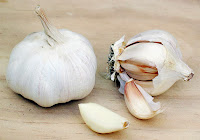The proverb "An apple a day keeps the
doctor away" may just be
true as found by research findings.
Apple
peels contain many nutrients. For example, they contain ursolic acid which
increases skeletal muscle and brown fat and decreases white fat, obesity,
glucose intolerance and fatty liver disease.
Apple
peels are a source of various phytochemicals and possible antioxidant activity
in vitro. The predominant phenolic phytochemicals in apples are quercetin,
epicatechin, and procyanidin B2.
According to the United States Department of
Agriculture, a typical apple serving weighs 242 grams and contains 126 calories
with significant dietary fiber and vitamin C content.
And
preliminary research suggests that apples may reduce the risk of colon cancer,
prostate cancer, lung and other cancers.For example, researchers at Cornell University U.S.
In addition, in a study by Briggs ADM, Mizdrak A, Scarborough P.
published in BMJ, a medical journal, to compare the estimated effects of statin
drug treatment on vascular disease (in the United Kingdom, the only drug class
recommended for primary prevention at a population level is the hydroxymethyl
glutaryl coenzyme A reductase inhibitors, or statins, for cardiovascular
disease prevention at the population level ) with those of an apple per day in
people over age 50, it was found that, assuming a 70% compliance rate,
prescribing statins to 22.8 million people in the UK over age 50 would result
in an estimated 9,400 fewer vascular deaths annually, compared with 8,500 fewer
annual vascular deaths for an apple per day.
Why eating apples is so effective
in preventing cardiovascular disease is due to the phenolic compound found in
apple peels, which can prevent the cholesterol that gets into our system from
solidifying on the artery walls. When plaque builds inside the arteries, it
reduces blood flow to our heart, leading to cardiovascular disease.
The estimated
side-effects arising from such widespread statin use include 1,200 excess cases
of myopathy, 200 cases of rhabdomyolysis and 12,300 cases of diabetes.
Thus the
study authors concluded that, both nutritional and pharmaceutical approaches to
the prevention of vascular disease may have the potential to reduce UK




